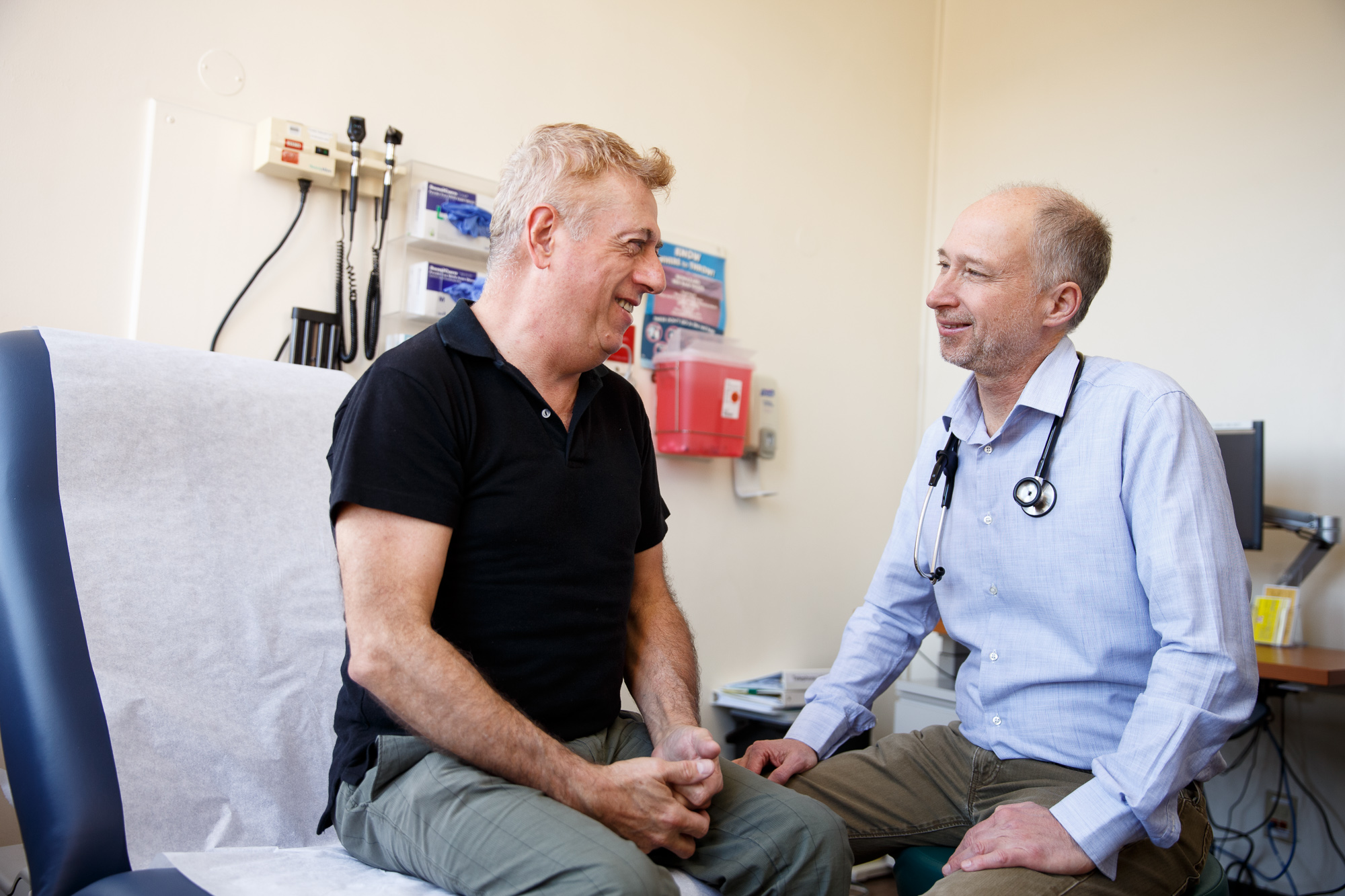HIV Clinic at Ward 86
Established in 1983 as one of the first dedicated HIV clinics in the United States, the HIV Clinic at Ward 86 is located on the Zuckerberg San Francisco General Hospital (ZSFG) campus.

Ward 86 has an electronic medical record with a patient portal, allowing patients to have secure internet-based access to medical records and health information.
In 2010, Ward 86 became the first clinic in the world to recommend Universal Antiretroviral Treatment regardless of CD4 count. The clinic policy states, “All patients, regardless of CD4 count, will be evaluated for initiation of antiretroviral therapy (ART)” and that “...all patients should be offered ART unless there is a reason to defer therapy.” Currently, over 90% of Ward 86 patients are prescribed ART and over 80% of those have an undetectable HIV viral load.
In addition, Ward 86 has formal HIV monitoring guidelines that provide recommendations on routine laboratory monitoring for HIV related issues.
Ward 86 is a proud partner of the San Francisco Department of Public Health. Funding comes from the City and County of San Francisco and the Ryan White Care Act with additional support from the San Francisco General Hospital Foundation and private donations.
